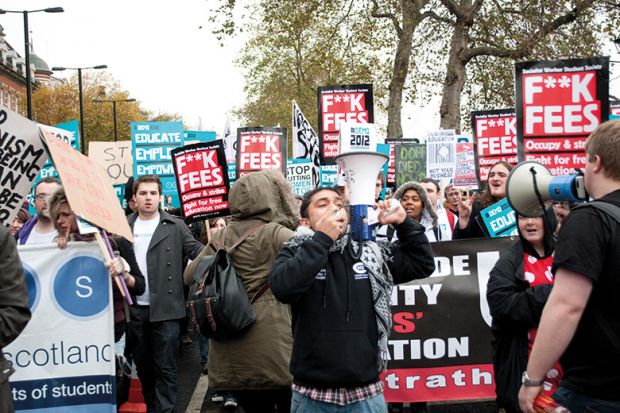Polling by YouGov has found that a majority of students in England and Wales do not feel that current tuition fee levels are justified, despite most believing it will improve their future financial situation.
The survey of 867 students found that 62 per cent felt the standard of education they receive and the wages graduates earn are not sufficent to warrant the cost of their degrees.
Only 13 per cent of students felt that the level of tuition fees, currently capped at £9,250 in England, reflects what they get in return.
This is despite the fact that 86 per cent of students polled were satisfied with the quality of their course, 70 per cent believe they will be better off financially because of a university degree and 85 per cent believe having a degree will improve their job prospects after university.
The survey showed that 59 per cent of students who are satisfied with the quality of their degree say that fees are too high. According to YouGov, even among those who said they were “very” satisfied the figure was still as high as 45 per cent.
Ben Glanville, head of YouGov Omnibus UK, said the study found “widespread resentment of the £9,000 fees from existing students – even if they expect to be better off in the long run and are generally satisfied with the level of education provided”.
Theresa May has set in motion a review of post-18 education funding in England, widely seen as being a response to Labour’s 2017 election pledge to scrap tuition fees.
The YouGov poll found that 59 per cent of students who believed a degree would improve their long-term financial prospects still feel tuition fees are too high. Fifty-four per cent of those who expect to be “much better off” in the long run thought the same.
The poll also found that 14 per cent of students think their degree will make no difference to their lifetime earnings, with 7 per cent believing it would leave them worse off.
Matthew Smith, a data journalist at YouGov, told Times Higher Education the survey “shows that attempting to justify £9,000 tuition fees with teaching quality will fall on deaf ears among students”.
“With the Labour party manifesto last year including a pledge to scrap tuition fees and the Conservative party subsequently making noises about reducing the overall rate, the £9,000 tuition fee rate clearly remains a politically salient issue six years after it was first introduced,” he said.
“The data shows that while students’ satisfaction with the quality of their degree teaching is very high and a large majority still expect to be better off financially and in terms of being able to find a good job, this seems to be in spite of the costs of tuition, which the majority consider unjustified.”
